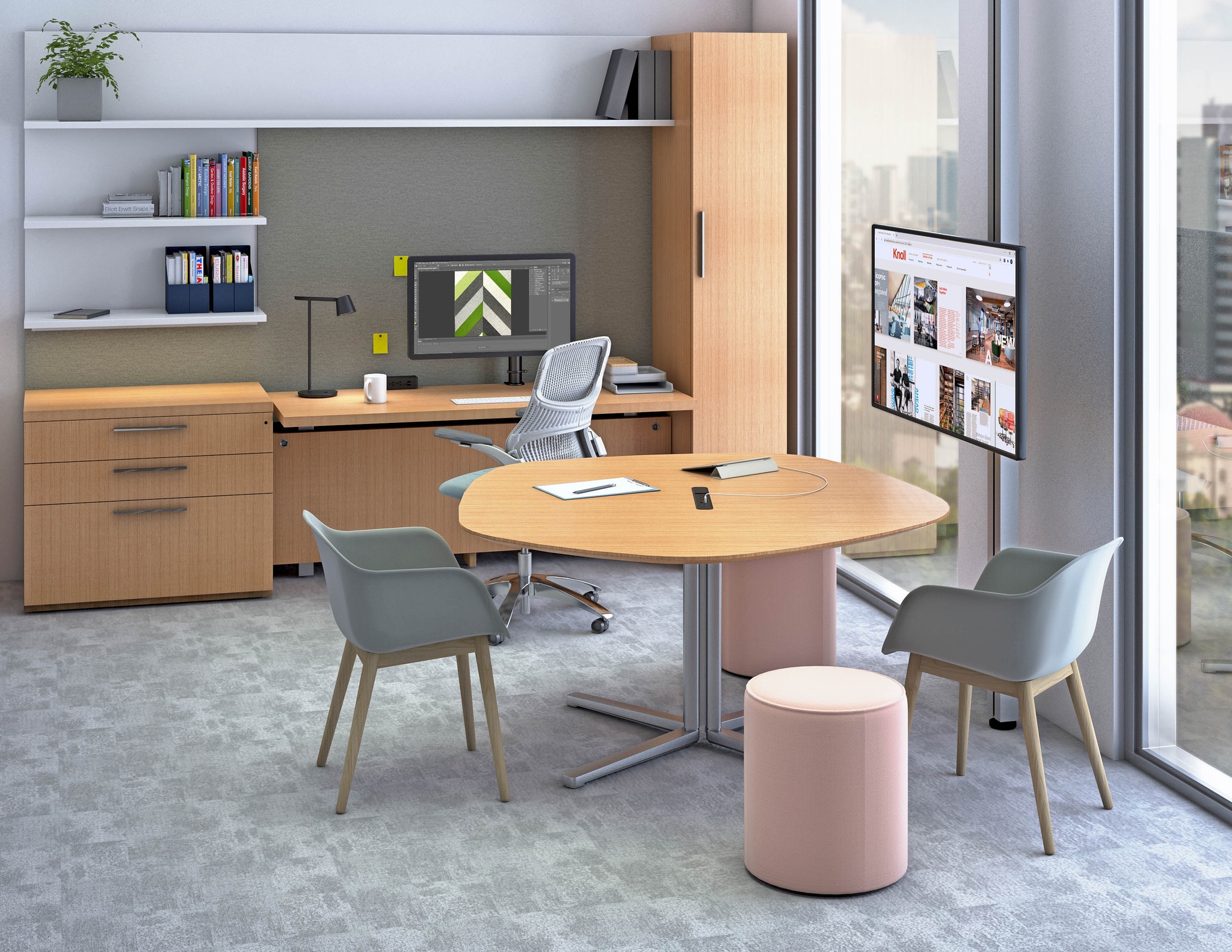Smart Offices: How Technology is Shaping Workplace Design in 2024
January 24, 2024

The office environment is evolving rapidly, with technology at the forefront of this transformation.
As we enter 2024, the concept of 'smart offices' is a trend and a must for those who want a modern workplace design, changing how we work and enhancing efficiency, comfort, and productivity.
Technology is an enabler and a vital catalyst in shaping offices. This digital transformation era has ushered in a new paradigm for work environments, where technology dictates the rhythm of daily work life and redefines physical and interactive spaces.
Gone are the days when technology in the office was limited to desktop computers and basic telecommunications. Today, we're witnessing a technological revolution transforming traditional office setups into intelligent, interconnected hubs of productivity and innovation.
Modern offices are evolving into smart, adaptive environments that respond in real-time to the needs of their users. These spaces are designed to be as dynamic and versatile as the technology they house, supporting various activities from focused individual work to collaborative team projects.
The Emergence of Smart Technology in Office Spaces
In today's world, offices are more than just physical spaces; they are dynamic environments powered by smart technology.
The Internet of Things (IoT) is no longer a buzzword but a reality, with devices interconnected to streamline operations and create a responsive workplace. This technological evolution redefines the traditional office layout, ushering in an era of smart, connected workspaces.
It's about creating a workspace that is intuitively aligned with the fast-paced, ever-changing demands of the modern business landscape. In 2024, offices will transform into fluid, agile spaces powered by technology, enabling businesses to be more resilient, adaptive, and forward-thinking.
Transforming Office Layouts with Tech Innovations
The influence of technology extends to every aspect of office design. Traditional rigid layouts are giving way to flexible, tech-enabled spaces.
Modular furniture, adaptable workstations, and movable walls are becoming common, allowing for quick reconfiguration of office layouts to suit different tasks and team sizes. This flexibility is crucial in accommodating various work styles and fostering collaboration.
Enhancing Employee Experience Through Smart Solutions
The impact of technology on employee experience is profound. Smart lighting systems that mimic natural light patterns, automated climate control for optimal comfort, and noise-canceling technology are examples of how tech enhances the workplace environment.
These innovations not only improve the physical comfort of employees but also boost their morale and productivity.
Integrating technology into workplace design responds to a broader cultural shift towards more flexible, agile work practices. The rise of remote working, the gig economy, and the emphasis on work-life balance reflect this shift.
Technology in the office facilitates these trends while actively shaping them, offering new ways to work and collaborate that were previously unimaginable.
Sustainable Practices in Smart Office Design
Sustainability is another critical aspect of smart office design. As environmental consciousness grows, more businesses adopt green technologies in their offices.
Energy-efficient appliances, smart sensors for optimizing resource usage, and eco-friendly materials are becoming standard in office designs, contributing to a healthier planet and workplace.
The Future of Work: A Blend of Flexibility and Technology
The future of work is an exciting blend of flexibility and technology, shaping a dynamic work environment.
Tech advancements empower workers with unparalleled flexibility, breaking the traditional boundaries of office spaces. Cloud computing and collaborative tools enable professionals to work efficiently from anywhere, helping to foster work-life balance and accessibility. This flexibility is further complemented by AI and automation integration that is helping to streamline certain time-consuming tasks and boost productivity.
Also, virtual reality meeting spaces, AI-driven project management software, and collaborative digital platforms are bridging the gap between remote and in-person interactions. These tools foster a culture of innovation and teamwork, irrespective of physical location.
As technology evolves, it promises a more connected, efficient, and adaptable work environment, transforming how we approach our professional lives in ways we've only begun to explore.
Incorporating Health and Wellness into Office Design
The health and wellness of employees are the bread and butter of smart office designs.
Ergonomic furniture, quiet spaces, and technology promoting physical activity are integral to modern office designs. These elements not only contribute to the physical well-being of employees but also to their mental health.
While the benefits of smart office design are clear, the transition is challenging. The cost of implementation can be prohibitive for some companies.
Data privacy and the pace of tech adoption also present hurdles that need careful consideration. A balanced approach is key — leveraging the benefits of technology while being mindful of potential challenges.
Wrapping it up
Smart offices create an environment conducive to productivity, well-being, and sustainability. As businesses adapt to these changes, it's crucial to stay ahead of the curve and ensure that office spaces meet today's needs and are prepared for the future.
At PURE Workplace, located in Kansas City, MO, we specialize in crafting these innovative, tech-forward office spaces. Whether you're looking to adopt smart office technologies or reimagine your workspace to align with the latest trends, our team is here to turn your vision into reality.
Contact us at info@pureworkplace.com to explore how we can transform your office into a smart, efficient, inspiring workspace.